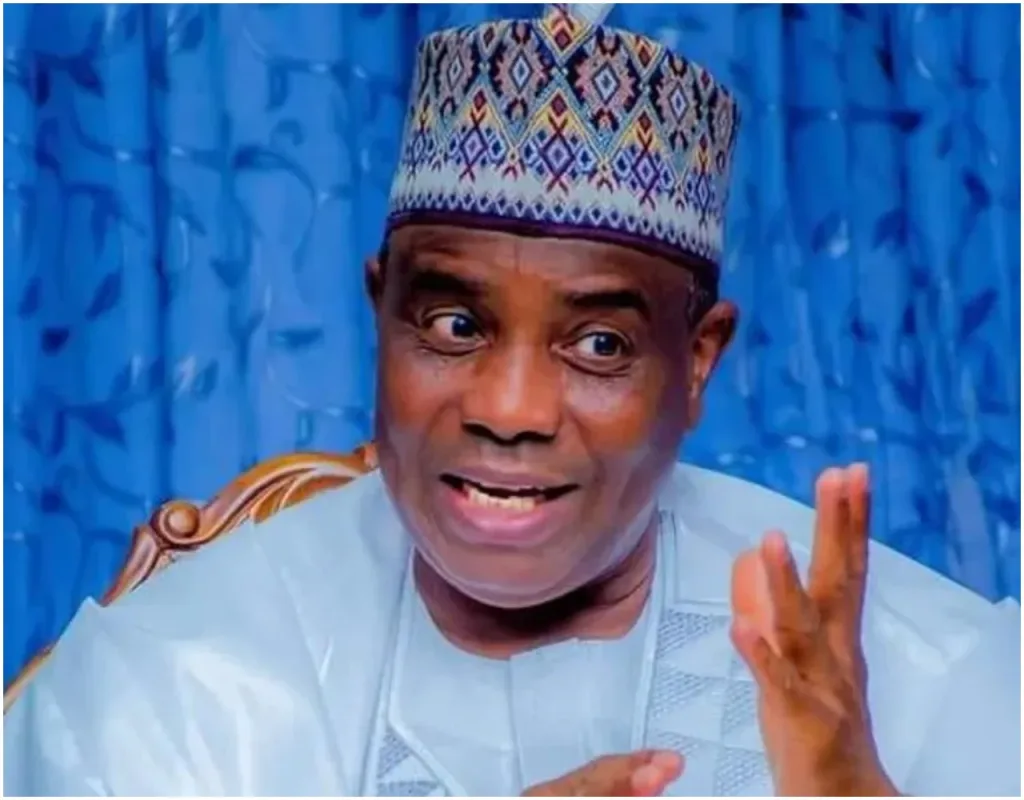The arrest of former Sokoto State governor Aminu Waziri Tambuwal by Nigeria’s Economic and Financial Crimes Commission (EFCC) has ignited a heated debate over the politicization of anti-corruption efforts, with prominent figures in the country’s north warning of potential repercussions. The EFCC detained Tambuwal, a two-term governor and former Speaker of the House of Representatives, on Monday for alleged money laundering involving ₦189 billion ($121 million) during his tenure. Investigators claim he violated the Money Laundering Act through large cash withdrawals, sparking accusations of partisan enforcement from opposition groups and activists.
Political leaders and civil society organizations have sharply divided over the case. The Peoples Democratic Party (PDP) and African Democratic Congress (ADC) dismissed the arrest as a tactical move to intimidate opposition figures. Former Vice President Atiku Abubakar, a key opposition leader, alleged the EFCC is being weaponized by President Bola Tinubu’s administration. Former Labour Party presidential candidate Peter Obi emphasized the need for impartiality in anti-corruption efforts, while the Human Rights Writers Association of Nigeria (HURIWA) condemned the detention as a “partisan tactic” eroding public trust.
The EFCC defended its actions, asserting its independence and commitment to due process. “The law applies equally, irrespective of political affiliation,” a spokesperson stated. However, northern activist Mahdi Shehu, in an interview with Media Talk Africa, accused the agency of selective enforcement, citing unresolved high-profile cases involving figures linked to the ruling All Progressives Congress (APC). He questioned why serving ministers like Godswill Akpabio and Bello Matawalle, along with over 40% of National Assembly members facing corruption allegations, had not faced similar scrutiny. Shehu also highlighted a Senate report alleging the state oil company, NNPCL, failed to account for ₦210 trillion ($135 billion) between 2017 and 2023, accusing the EFCC of ignoring systemic graft in agencies under presidential oversight.
Further criticism focused on Power Minister Bayo Adelabu, whose display of a newly built luxury property raised eyebrows. Shehu alleged Adelabu’s swift wealth accumulation went uninvestigated due to political connections. Adnan Mukhtar Tudunwada, a former Kano political aspirant, echoed these concerns, calling the arrest “purely political” and tied to Tambuwal’s recent critiques of Tinubu’s policies.
Amid the backlash, public affairs analyst Rabiu Musa urged a focus on legal accountability rather than political narratives. “If there’s evidence of wrongdoing, it should be addressed transparently,” he argued, emphasizing the need to separate alleged crimes from partisan disputes.
The case has intensified scrutiny of Nigeria’s anti-graft framework, with critics alleging systemic bias and supporters framing it as a test of institutional integrity. As the EFCC proceeds with its investigation, the outcome may shape perceptions of Nigeria’s commitment to equitable governance ahead of future elections.
